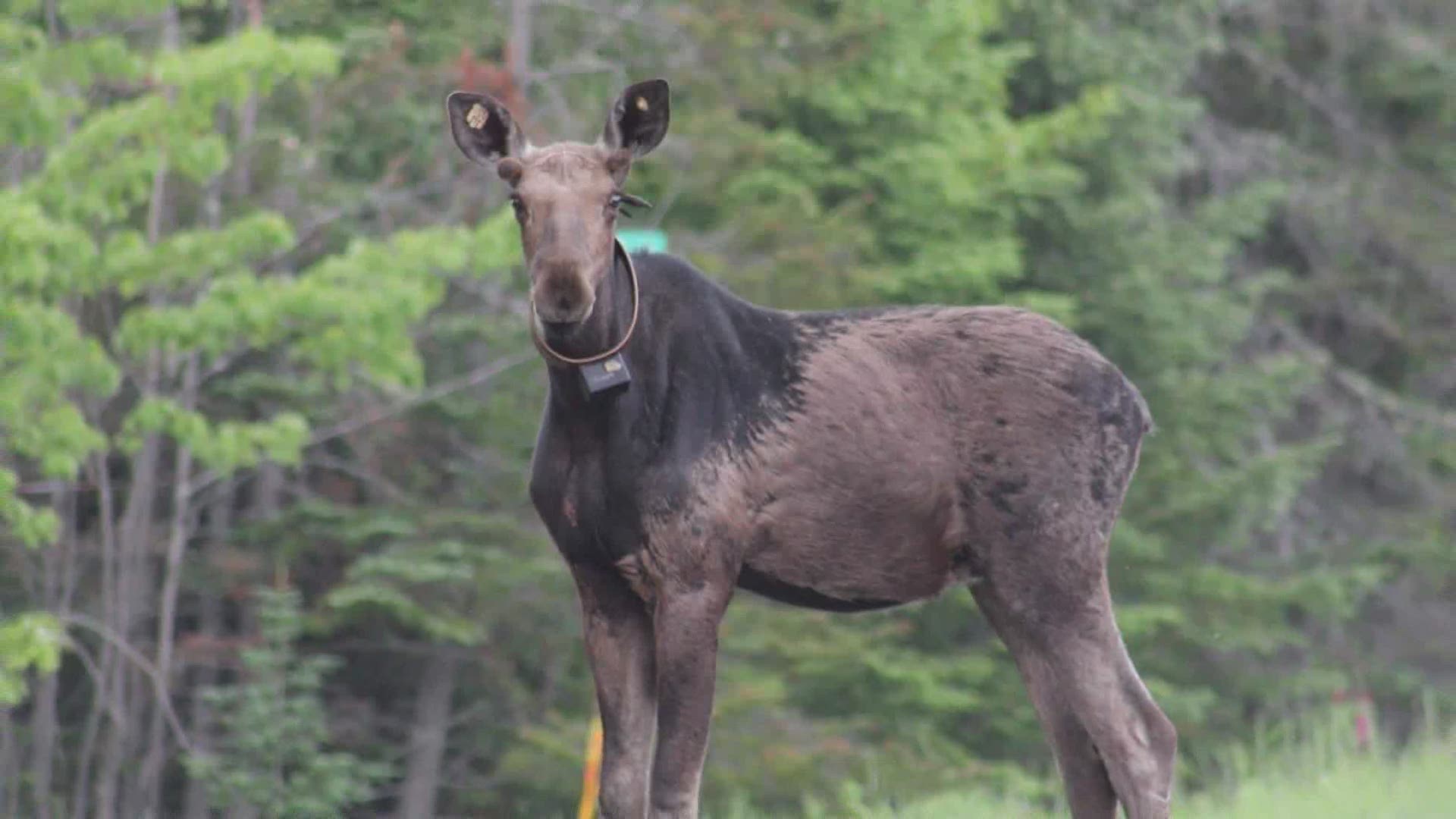ORONO, Maine — A new research project is about to kick off at the University of Maine to better understand the effects of parasites on Maine's moose, and how to protect the declining population.
For years now, The Maine Department of Inland Fisheries and Wildlife, in conjunction with Maine's moose biologist, Lee Kantar, has been collaring and collecting samples from moose; now, a team of veterinarians, biologists, professors, and students will be researching those samples and working to formulate new plans of protection.
The team is led by Pauline Kamath, University of Maine assistant professor of animal health. "One of the focuses of our work particularly is trying to understand not just how the winter tick affects survival, but how particular infections that basically attack the blood cells of those who are already being depleted of their blood through winter ticks feeding on them and sucking them dry of blood, basically," says Kamath. "So then trying to imagine the compounding effects of some other parasites, and we have found in previous work that there are other parasites that are affecting the blood cells of some of these moose that could be exacerbating the issue."
The three year study will include help from Sandra De Urioste-Stone, associate professor of nature-based tourism in the School of Forest Resources; Anne Lichtenwalner, Extension veterinarian and associate professor and director of the University of Maine Cooperative Extension Veterinary Diagnostic Laboratory; Sabrina Morano, assistant research professor in the Maine Department of Wildlife Fisheries and Conservation Biology; and Lee Kantar, moose biologist with the Department of Inland Fisheries and Wildlife.
"We are working with the Maine Department of Inland Fisheries and Wildlife who is doing the field component, but I will have a couple of graduate students on this team who will hopefully be in the field and in the lab collecting data on parasites and infection of a bacteria in these particular moose," explains Kamath.
The study, which kicks off in January, is one of 12 funded this year by the Morris Animal Foundation, which awarded $930,000 in wildlife health research grants. The UMaine study is called: "Evaluating the Impacts of Winter Ticks and Tick-borne Disease on Moose Survival."

